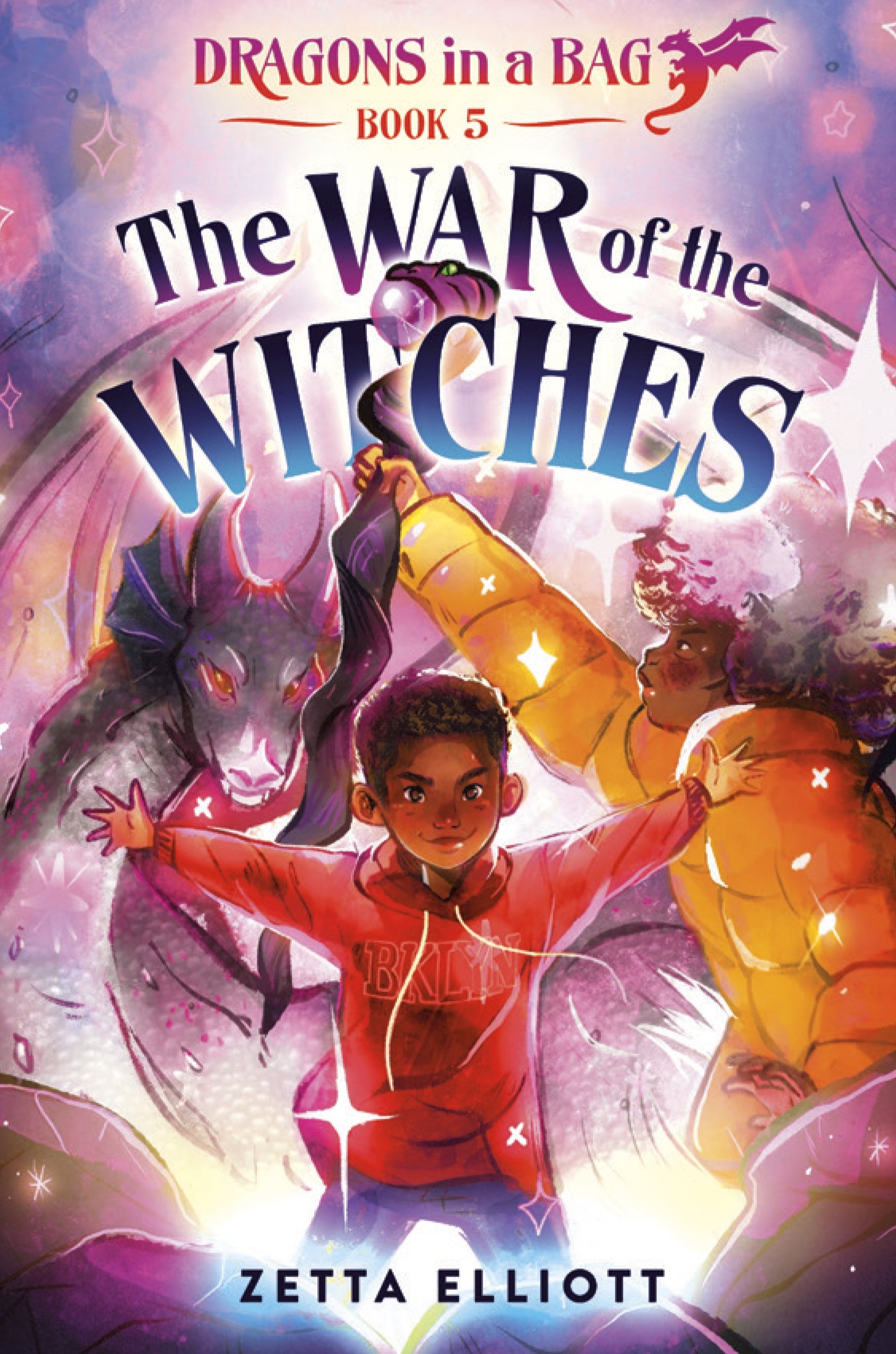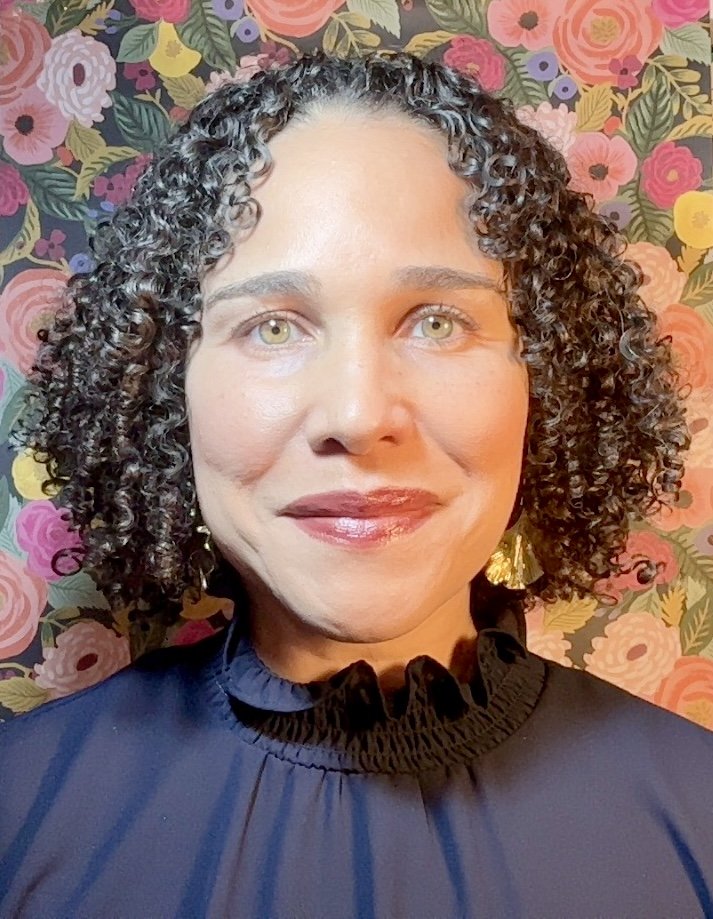Process Talk: Zetta Elliott on Dragons in a Bag (Part 3)
For some months now, I have been email-chatting with Zetta Elliott about her Dragons in a Bag series. At one point, relative to how the deeply personal finds voice in fiction, she wrote:
In 2004 my father died and I accepted a teaching position in Djibouti. It was my first time in Africa and the job ultimately fell through; I chose to return to Toronto and moved back home with my mother. Being in Canada is always challenging for me but I also experienced similar feelings of estrangement in Africa. I wrote my first memoir that year, Stranger in the Family, and it allowed me to process, and theorize, and expose much of the emotional baggage I'd been carrying since childhood. Once that book was done, I felt like I was better able to get out of my own way when writing fiction. Many of my early picture books (like Room in My Heart and Bird) are based on my own experiences but as I matured as a person and a writer, I became more adept at planting seeds of myself in my work. The goal is always to tell a good story and you can't do that if you burden the narrative with too many facts or too much pain.
That planting of seeds led to this final conversation:
[Uma] In this series, you have ancient connections that have been severed, leaving huge persisting disagreements on whether and how that rift should be mended. And you have kids in the middle, trying to find their way. That is almost exactly how children exist in real places in the real world. Can you talk about how you use real places—both NY and Chicago—to blend real-world human history with the history of this magical world?
[Zetta] The truth is, I'm not very good at world-building! Or maybe it's more accurate to say that I'm not particularly invested in it. I'm not writing fantasy fiction to offer kids an alternative to reality or a way to escape "the real world." I want them to look at their neighborhood with new eyes and so I write about my own very ordinary neighborhood in an extraordinary way. I lived in Brooklyn for twenty years and it always felt magical to me. Partly because I'm an immigrant so I had to learn how to navigate a new place, and partly because I didn't feel oppressed by a minority status that makes others feel entitled to constantly question your right to take up space (CANADA). People immediately asked me for directions in Brooklyn because I looked like a native, and all the friends I made were immigrants of color. In my dragon series I wanted to recreate that diverse, inclusive community where everyone feels welcome and then show it under threat--or show its limitations, I suppose. Who gets to feel safe? Who is welcomed and who is not? Magical worlds are often represented as utopias so why would anyone want to leave? What do we lose when we build walls instead of opening doors? I try to create parallels between the two realms but I also ask more questions than I answer. I want readers to see the everyday magic in our world--especially in urban neighborhoods that are regularly depicted by outsiders as unsavory and/or unsafe.
[Uma] For every novel I’ve ever written, I’ve had to get past stages when the whole thing feels weak or thin, or misguided, when self-doubt creeps in. Sometimes chapter 11 becomes a stumbling block. Sometimes it’s a character whose motivations or actions feel forced. Did you have any such moments in the writing of these books and how did you get past them?
[Zetta] My biggest challenge is staying focused but when I'm writing, there aren't many blocks because I follow a fairly detailed outline. Once I've spent hours dreaming about the book and hearing my characters' voices, then I have to create some kind of structure. I don't usually write in a linear fashion; I jump around, adding snippets of dialogue to various chapters, writing the conclusion and then going back to the beginning. Right now I'm stuck on the first chapter of the prequel, The Oracle's Door. Ma is nine years old and living in Chicago in 1919. L. Roy is her best friend and I'm trying to write something short and compelling but it just isn't working. The chapter is too long...so I went ahead and wrote a dozen others! But that first chapter needs to be hammered out and that just takes focus. I've published over forty books so I have less self-doubt now than I did as a younger writer; I know I can finish what I start, and I'm only aiming for twenty-five thousand words (I'm at 20K now). The panic that does creep in is usually related to the industry--I don't have an agent, and can't seem to get one even after querying for over a year. Does that mean I've been blacklisted? Can I sell any more projects when editors at the Big 5 won't accept unagented manuscripts? If I self-publish, will fans of the series stay loyal or will the book slip into literary oblivion? When those concerns take over, I generally remind myself to focus only on the things I can control--like finishing Chapter 1! That's a lot easier than solving anti-Blackness in the publishing industry.
[Uma] Book 5, released only last month, takes on the biggest of all conflicts. “War” is even in the title. Talk about that.
[Zetta] When I was writing Book 5, I made sure my characters were questioning the need to go to war. Yet I still feel uneasy having the word "war" in the title when so many children around the world are being devastated by conflict right now. I've decided to use the book as an opportunity to talk about what it means to be a peacemaker. This series took up so much space in my imagination...I'm relieved to be done but also a little bit terrified. I doubt I'll ever sell half a million books again. Will I be able to support myself if I stop writing fantasy fiction for kids? My writing goal this year is to transition back to writing for adults but I sort of feel the shadow of a dragon hanging over me...the next project on my list is a ghost story and after that--Vikings! So I won't be abandoning magic entirely. I recently saw a meme on Facebook that said, "Give yourself permission to suck at something new." I'm going to try to follow that sage advice!
[Uma] Relieved and terrified: I know the feeling. I’m giving myself permission…. And a prequel? Now that is something to look forward to. Thank you, Zetta!

